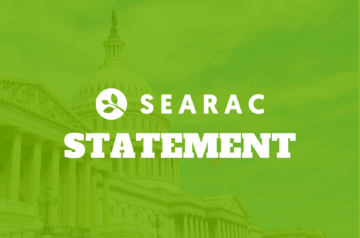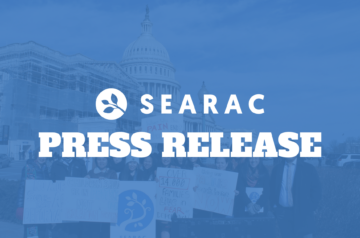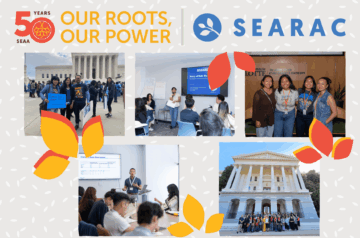Washington, DC – SEARAC condemns the Trump Administration for broadening visa sanctions on Laos for not complying with the president’s demands to speed up deportations from the United States.1 The expanded policy blocks the issuance of both immigrant (permanent) and nonimmigrant (temporary) visas to Lao nationals seeking to enter the United States.
Currently, 1.4 million Asian community members are waiting to reunite with their families in the United States, including over 210,000 individuals from Vietnam, 9,000 from Cambodia, and 2,000 from Laos.23 Some of these individuals have been in the visa backlogs for over a decade and now face an even longer delay in reuniting with their families. Following a 2018 sanction on non-immigrant visas by the Trump Administration, this is an unprecedented move that makes Laos one of a few countries to ever be hit with a second round of visa sanctions.
Since 1998, more than 4,500 community members have been issued deportation orders to Laos. Of that number, there have been over 200 deportations, with more than 4,300 still living in fear and limbo.4,5 As the only Southeast Asian country with no repatriation agreement with the United States in place, Laos has been able to keep its deportation numbers relatively low, compared to Vietnam and Cambodia. As a result, thousands of Lao, Hmong, Iu Mien, Khmu, and other ethnic minority community members with deportation orders have lived in the United States for decades–many rebuilding their lives post-incarceration. However, these visa sanctions have the potential to further shift the deportation landscape for Lao, Hmong, and other Lao minority community members with deportation orders. Earlier this year, it was reported that the Lao government had made a verbal agreement with the United States to deport more individuals annually. Despite this proposed compromise, the Administration has proceeded with its threats to limit immigration.
“It is unacceptable that this Administration chooses to focus on threatening the separation of our families through deportation during a global health emergency and in the midst of mass civil unrest following the death of George Floyd,” said Quyen Dinh, executive director of SEARAC. “Once again, this president chooses to divide instead of unite our country. As we commemorate the 45 years of Southeast Asian refugee resettlement and resilience in America, we call for humane and compassionate leadership that prioritizes the safety and civil rights for our community and country.”
If you or your family are potentially impacted by this policy change and would like to share your story, please email Sina Sam at sina@searac.org.



